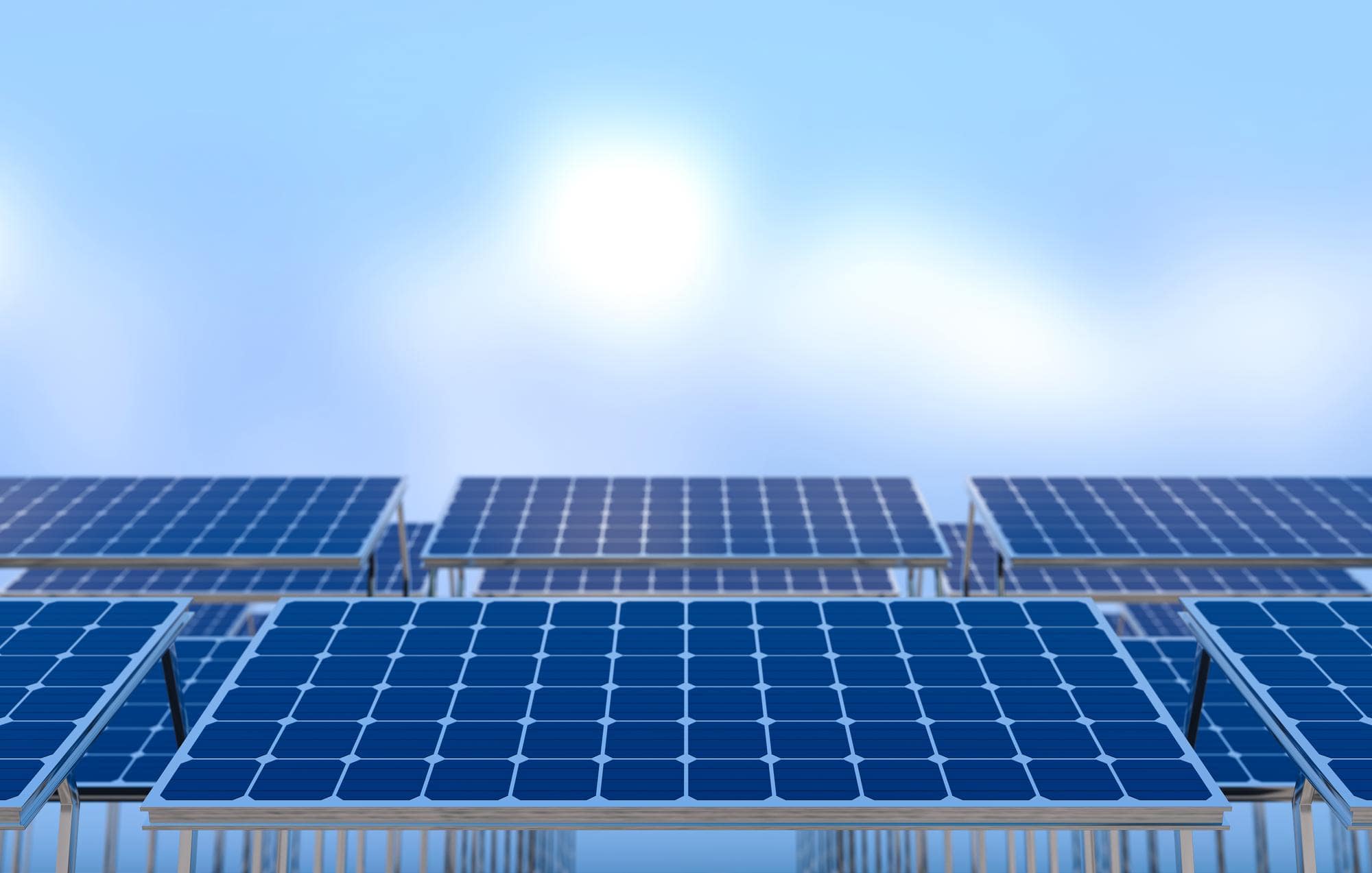Imagine harnessing the sun’s power to light up your home, save on energy bills, and contribute to a cleaner environment. That’s precisely what solar panels can do for you. But, are solar panels worth it in 2023, and what about grants and schemes available in the UK? Read on to discover solar panels’ benefits, costs, efficiency, and impact on home value, as well as real-life examples and tips to overcome common obstacles.
Key Takeaways
- Solar panels reduce carbon emissions, promote energy independence and offer long-term savings of up to £1,600 annually.
- Potential government incentives and long-term energy bill savings can offset installation costs for solar panels.
- Various grants & incentive programs are available in the UK to help homeowners finance their installation while taking advantage of renewable energy benefits.
Understanding Solar Panel Benefits
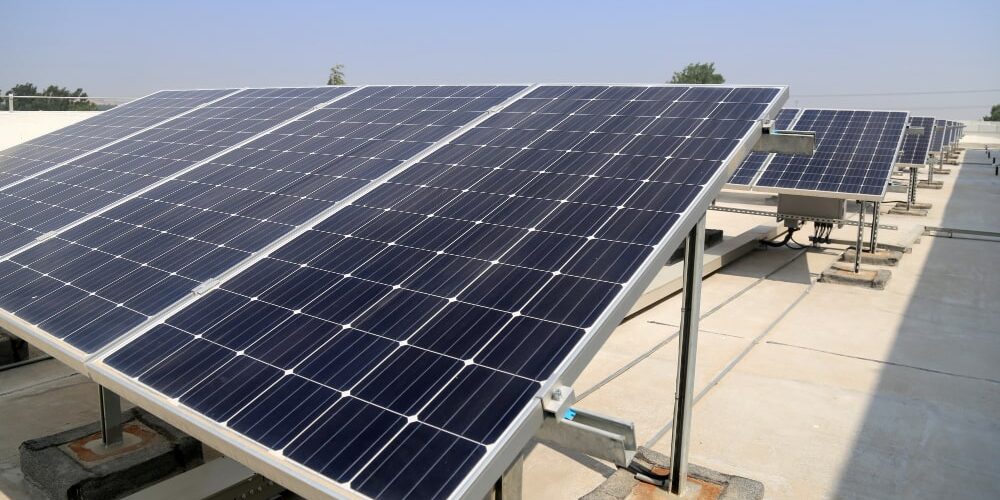
Investing in solar panels offers many benefits, including reducing carbon emissions, gaining energy independence, and enjoying long-term savings on energy bills. With government grants and schemes like the energy company obligation (ECO4), low-income households can access these benefits more efficiently, including obtaining free solar panels.
Next, we explore the primary benefits of solar panels.
Environmental Impact
Harnessing the sun’s energy through solar panels offers several benefits:
- It is a clean and sustainable way to generate electricity.
- It reduces dependence on fossil fuels and helps to lower greenhouse gas emissions.
- Solar panels contribute to improved air quality and a healthier environment.
- The ECO4 scheme helps low-income households upgrade to eco-friendly options like solar PV panels, promoting renewable energy adoption and efficiency improvements.
Moreover, solar energy is one of the renewable energy sources that doesn’t require water to generate electricity, reducing water consumption and preserving our natural resources. By incorporating solar panels into your home, you’re saving money and playing a vital role in protecting the environment.
Energy Independence
Energy independence is generating and using energy without relying on external sources, such as the national grid. Installing solar panels allows homeowners to produce renewable electricity, reducing dependence on energy suppliers and providing energy security. Homeowners can take control of their energy needs and costs by becoming their energy supplier.
The UK government has introduced the Smart Export Guarantee (SEG) as a part of their energy company obligation scheme. This initiative requires larger energy suppliers to offer export tariffs to customers who generate renewable electricity using solar panels or wind turbines. This means that homeowners can be compensated for any surplus energy they produce, further increasing the financial benefits of solar panels.
Solar panels provide you with control over your energy supply and establish a sustainable and self-sufficient energy solution for your home.
Long-term Savings
Solar panels can significantly save energy bills over time, making them a worthwhile investment for many homeowners. Government-funded initiatives like the ECO4 scheme provide financial assistance for installing solar panels, facilitating access to cleaner and more affordable energy solutions.
The Smart Export Guarantee ensures that energy providers compensate homeowners for any unused solar-generated electricity, further increasing the potential savings. With programs like ECO4 and SEG in place, homeowners can reduce their energy bills by up to £1,600 annually.
The long-term savings from solar panels make them an attractive option for homeowners and contribute to a greener and more sustainable future.
Evaluating the Cost of Solar Panels

Assessing the costs involved, such as installation, maintenance, and available grants and incentives, is crucial when considering solar panels. Understanding these costs can help you decide whether solar panels are the right choice for you and your home.
Considering the long-term benefits of solar panels, like reduced energy consumption, is essential.
Installation Costs
The installation costs for solar panels can vary depending on system size and location. Recent years have seen a significant decrease in solar panel prices, making them more accessible to a broader range of homeowners. On average, a 4kW solar panel system can cost around £5,000 to install, but costs can range from £2,800 to £8,000 for a 3.5 kWp to 4kW system.
Remember that while the initial costs may be high, the long-term savings on energy bills and potential government incentives can offset these expenses over time.
Comprehending installation costs is key to evaluating solar panels’ overall return on investment.
Maintenance Costs
Solar panels generally have low maintenance costs, requiring little upkeep once installed. However, occasional expenses, such as cleaning equipment and annual service and cleaning, which may cost around £100 to £200, should be accounted for when considering the overall costs of solar panels.
Grants and Incentives
Various grants and incentives are available in the UK to help offset the cost of solar panel installation. The Smart Export Guarantee (SEG) is the only scheme currently open to new applications. Larger energy suppliers must offer an export tariff to customers generating renewable electricity through solar panels or wind turbines.
Other available grants and incentives, such as solar panel grants and grants for solar panels, include the Energy Company Obligation (ECO4) scheme, which provides financial assistance to low-income households for insulation and solar panel installations. By taking advantage of these grants and incentives, homeowners can significantly reduce the initial costs associated with solar panel installation and enjoy the long-term benefits of clean, renewable energy.
Solar Panel Efficiency and Performance
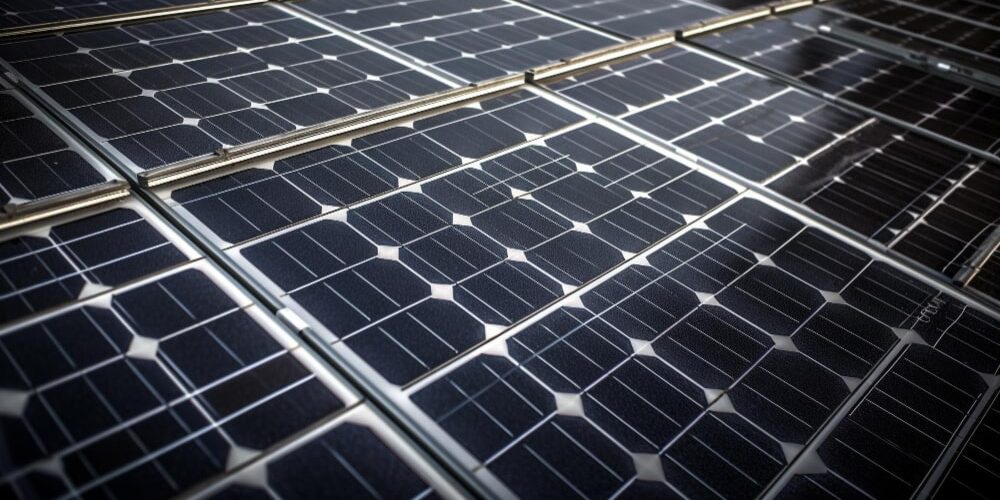
When deciding to invest in solar panels, the efficiency and performance of the solar panel are important considerations. Factors affecting efficiency, technological advancements, and the return on investment all play a role in determining the overall value of solar panels.
Factors such as the type of solar panel, the amount of sunlight available, and the angle of the panels are all important considerations.
Factors Affecting Efficiency
Factors such as panel orientation, shading, and temperature can influence solar panel efficiency. Solar panels should be installed facing south in the UK for optimal performance, as this orientation captures the most sunlight. Shading can notably lower solar panel efficiency; thus, your panels must be unobstructed by trees, buildings, or other barriers.
Temperature also plays a role in solar panel efficiency. Higher temperatures tend to reduce efficiency, while lower temperatures can increase efficiency. Appreciating these factors and incorporating them during installation allows homeowners to maximize the performance and efficiency of their solar panels.
Technology Advancements
Technological advancements in solar panel technology continue to improve efficiency and performance, making solar panels more attractive to homeowners. Recent breakthroughs include:
- The development of Copper-Indium-Gallium-Selenide (CIGS) solar shingles, which are more durable and lightweight than traditional solar panels
- Innovations in solar cell efficiency
- Energy storage solutions that have further boosted the performance of solar power systems
These technological advancements enhance the efficiency and performance of solar panels and contribute to reducing installation and maintenance costs. Some of the advancements include:
- Improved solar cell efficiency
- Thin-film solar panels
- Solar tracking systems
- Integrated solar panels
- Solar panel coatings
As technology continues to evolve, solar panels, including solar thermal panels, are becoming an increasingly appealing choice for homeowners seeking a sustainable and cost-effective energy solution.
Return on Investment
The return on investment (ROI) for solar panels depends on various factors, including installation costs, energy savings, and available incentives. While the initial investment may be high, the long-term savings on energy bills and potential government incentives can offset these expenses over time.
Research also indicates that solar panels can add value to your home, with an average increase of 4.1% in the United States and 14% in the UK for properties already equipped with solar panels.
Taking into account the factors that affect ROI enables homeowners to decide on the value of investing in solar panels.
Solar Panels and Home Value
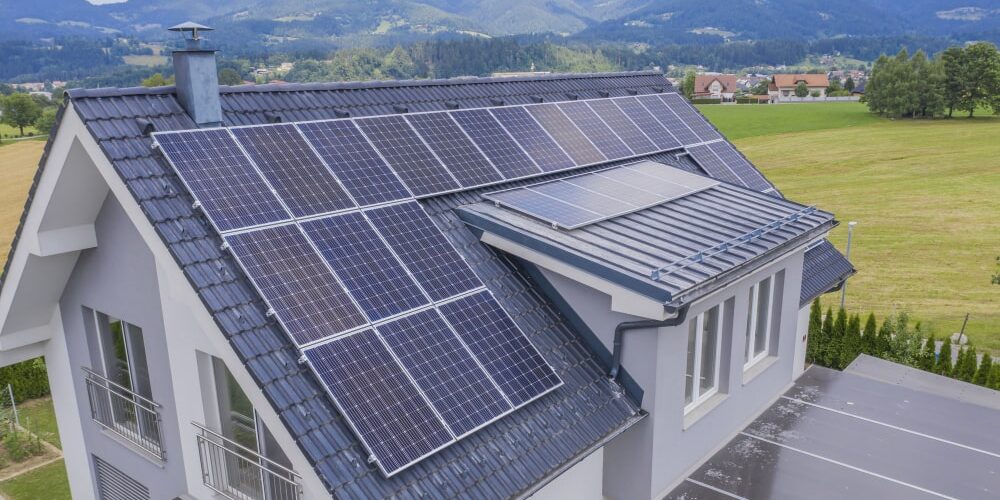
Solar panels can significantly impact home value, resale potential, and mortgage options. Comprehending these factors will assist homeowners in determining if solar panels are a fitting choice for their property.
Installing solar panels can enhance a home’s value, thus making it more appealing to prospective buyers.
Increased Property Value
Solar panels can increase property value by improving energy efficiency and reducing energy costs. Studies show that homes with solar panels can experience a value increase of up to 25%, with each dollar saved on electricity bills due to solar panels boosting the value of a home.
By investing in solar panels, homeowners can:
- Save on energy costs
- Enhance the overall value of their property
- Attract potential buyers who are interested in eco-friendly homes with reduced energy costs
Resale Potential
Homes with solar panels may have greater resale potential due to increased buyer interest in energy-efficient properties. Studies have indicated that homes with solar panels have a 4.1% higher sale price than those without, as buyers are willing to pay more for the long-term savings and environmental benefits solar panels provide.
By installing solar panels, homeowners can enjoy the immediate benefits of reduced energy costs and improve the resale potential of their property, making it a more attractive investment for potential buyers.
Mortgage Options
Some mortgage providers offer incentives for homeowners who install solar panels, such as cashback rewards or discounted rates. For example, the Halifax Green Living Reward offers up to £500 cashback for installing solar panels. At the same time, the Barclays Greener Home Reward scheme provides financial incentives for solar panel installation to their UK residential mortgage customers.
Utilizing these mortgage options and incentives allows homeowners to mitigate the initial costs of solar panel installation while reaping the long-term benefits of clean, renewable energy.
Solar Panel Lifespan and Warranty

The lifespan and warranty information of solar panels are vital considerations in assessing these installations’ overall value and return on investment. Understanding the expected lifespan, warranty options, and when to replace solar panels can help homeowners decide whether solar panels are a worthwhile investment.
Expected Lifespan
Solar panels typically have a lifespan of 25 to 30 years, with more recent models lasting up to 40-50 years with proper care and maintenance. Over time, the performance of solar panels may gradually decrease, impacting their efficiency and energy output.
Despite the potential decline in performance, solar panels’ long lifespan ensures that homeowners can enjoy the benefits of renewable energy for many years. By properly maintaining and monitoring their solar panel system, homeowners can maximize the lifespan and efficiency of their solar panels.
Warranty Options
Most solar panel manufacturers provide a minimum warranty of 25 years, with some extending the coverage up to 30 years. Warranties typically cover defects in materials and workmanship for a specified period, providing homeowners with peace of mind and protection against potential issues.
Beyond the warranty, several solar panel manufacturers provide extra services like installation and maintenance.
When to Replace Solar Panels
Solar panels may need to be replaced when their performance declines significantly or when they no longer meet the homeowner’s energy needs. Considering the factors that can influence solar panel performance and lifespan can help homeowners determine when it’s time to replace their solar panel system and ensure they continue to enjoy the benefits of renewable energy.
Considerations like the system’s age, the installation’s quality, and the type of panels play a role.
Real-Life Examples and Testimonials

Hearing real-life examples and testimonials from homeowners who have installed solar panels can provide valuable insights and perspectives on the benefits and challenges of solar panel installation. These firsthand accounts can help potential solar panel adopters decide whether solar panels are the right choice for their homes.
Mary, a homeowner in Manchester, installed solar panels on her south-facing roof two years ago. Since then, she has experienced the following benefits:
- A significant reduction in her energy bills
- A sense of pride in contributing to a cleaner environment
- Financial assistance through the ECO4 scheme which made the installation more affordable.
Another homeowner, John from London, joined a Solar Together scheme and saved 30% on the cost of his solar panel installation. He has noticed a considerable decrease in energy bills and enjoys the independence of generating renewable electricity.
Overcoming Common Obstacles
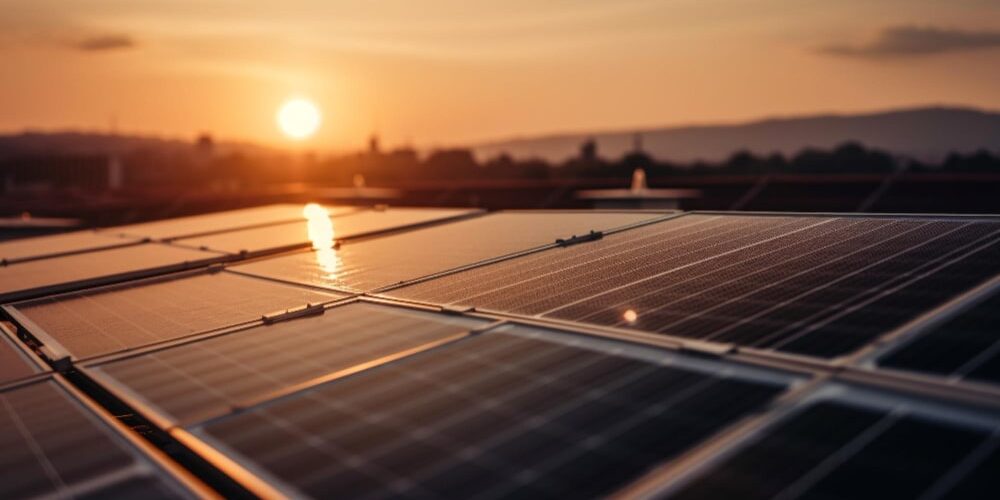
While solar panels offer numerous benefits, homeowners may face common obstacles during installation, such as planning permission, roof suitability, and financing options.
Understanding these challenges and exploring potential solutions will enable homeowners to surmount these obstacles and successfully install solar panels on their properties.
Planning Permission
Planning permission is generally not required for solar panel installation, but homeowners should check local regulations and restrictions to ensure their installation conforms to all relevant regulations. Consultation with your local authority and planning department is crucial to confirm if planning permission is required for your specific installation.
In some cases, planning permission may be required for installations in conservation areas or listed buildings. Staying updated on local regulations and seeking advice from local authorities will help homeowners ensure their solar panel installation complies with all necessary rules and prevents potential problems.
Roof Suitability
Roof suitability is an essential consideration for solar panel installation, with factors such as orientation, shading, and structural integrity playing a role. Solar panels should be installed on south-facing roofs for optimal performance, as they are most effective in capturing sunlight.
Additionally, evaluating the amount of shade on your roof is crucial, as shading can significantly decrease solar panel efficiency. Structural integrity is also essential for solar panel installation, as panels must be firmly attached to the roof. Verifying that your roof is structurally sound and can support the weight of solar panels is vital before proceeding with installation.
Financing Options
Financing options for solar panels include grants, incentives, and loans, making it easier for homeowners to afford the initial investment in solar panels. Government-funded initiatives, such as the ECO4 scheme and the Smart Export Guarantee, provide financial assistance for solar panel installation to eligible homeowners.
In addition to grants and incentives, some banks and financial institutions offer loans for solar panel installation, allowing homeowners to spread the cost over several years. Exploring these financing options can make solar panel installation more affordable and accessible for homeowners, enabling them to reap the long-term benefits of renewable energy.
Summary
In conclusion, solar panels offer numerous benefits to homeowners, including reduced energy bills, increased property value, and a cleaner environment. With various grants, incentives, and financing options available in the UK, solar panels are becoming more accessible and affordable for homeowners. By understanding the factors that influence solar panel efficiency, performance, and return on investment, homeowners can decide whether solar panels are the right choice for their property.
Frequently Asked Questions
Are solar panels in the UK worth it?
Solar panels in the UK can help you reduce your energy bills significantly and provide a return on investment after just ten years. Households with a 4.2 kW system may see reductions of £210 to £514 per year, while the average three-bedroom household will save 64% on its electricity bills and break even on the cost of panels after 14.1 years. Solar panels make an excellent long-term investment for UK households.
How quickly do solar panels pay for themselves?
On average, domestic solar panel systems can pay for themselves in around 9.5 years, with some locations reaching as low as 4.1 years. The exact time frame will depend on usage and other factors, but generally, it takes 15-25 years to pay back the installation costs fully.
Do the pros outweigh the cons of solar panels?
The advantages of solar panels, such as cost savings and environmental protection, clearly outweigh the cons. Solar energy is an attractive option for consumers who want to make their home or business more efficient and sustainable.
Is there a downside to solar panels?
Solar energy can be reliable in any climate, but comes with a high initial cost and is subject to disruptions from cloudy weather. Additionally, they take up a lot of space and the production, transport, and installation process has some minor pollution.
Is there a government grant for solar panels in the UK?
Yes, a government grant for solar panels in the UK is available through the ECO4 scheme, as well as other grants, loans, and incentives through local authorities and the devolved governments of Scotland, Wales, and Northern Ireland. This grant is aimed at households with low energy efficiency who are likely to face financial difficulties heating their homes.
